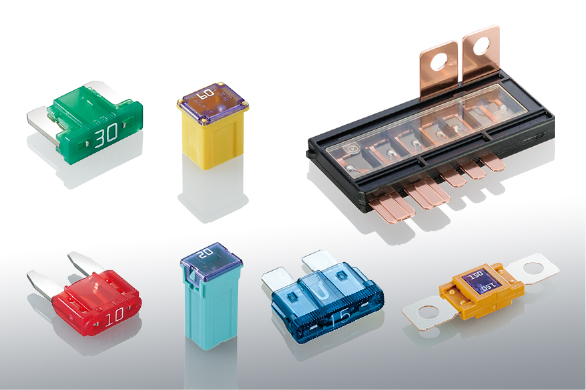The Importance of Proper Fusing in Automotive Brake and Turn Signal Circuits
News 2025-10-13
Car fuses are essential safeguards in automotive electrical systems, protecting against overloads and short circuits that could lead to catastrophic failures. For brake lights and turn signals, which are critical for road safety, fuses ensure reliable operation by interrupting power when issues arise. Brake lights signal deceleration to following drivers, while turn signals communicate directional intent, both relying on precise electrical management. Selecting the right fuse type and rating is key to maintaining vehicle integrity and preventing accidents caused by electrical malfunctions.

Key Applications in Vehicle Safety Features
Fuses dedicated to brake lights and turn signals find extensive use across various vehicle categories, including sedans, SUVs, and commercial trucks. In standard applications, these fuses protect circuits powering the bulbs that illuminate when brakes are applied or turn signals are activated. For instance, in modern cars with integrated lighting systems, fuses safeguard against faults in high-intensity discharge (HID) or LED setups, ensuring consistent performance during essential maneuvers like stopping or changing lanes. This protection extends to advanced safety technologies, where fuses help maintain functionality in systems like automatic emergency braking, enhancing overall road safety.
Advantages in Performance and Durability
High-quality fuses for these lighting circuits offer superior performance through rapid response to overcurrent situations, minimizing damage and reducing repair costs. Typically rated between 10 to 20 amps, they provide precise protection without unnecessary interruptions, allowing brake and turn signal systems to function reliably under diverse conditions. Their robust construction, often using materials like ceramic or blade-style designs, resists corrosion and vibration, ensuring longevity in harsh automotive environments. This reliability not only boosts vehicle safety but also contributes to energy efficiency by preventing excessive power draw that could affect battery life or other electrical components.
Frequently Asked Questions
1. What is the standard amperage for brake light fuses?
Brake light fuses usually range from 10 to 15 amps, but this varies by vehicle make and model; consult the owner’s manual for specific ratings.
2. How do I check if a turn signal fuse is faulty?
Inspect the fuse for a broken filament or use a multimeter to test continuity; a reading of infinite resistance indicates a blown fuse.
3. Why should I avoid using higher-rated fuses?
Using a higher-rated fuse can fail to protect the circuit during overloads, potentially causing wiring damage or fire hazards, while compromising safety features.


